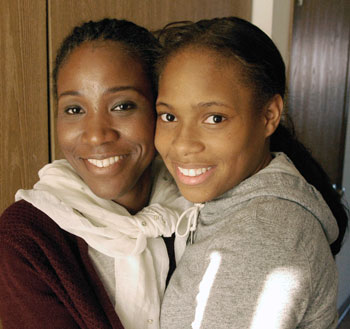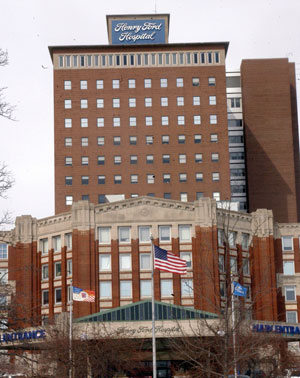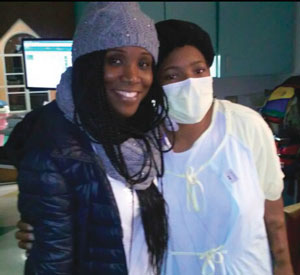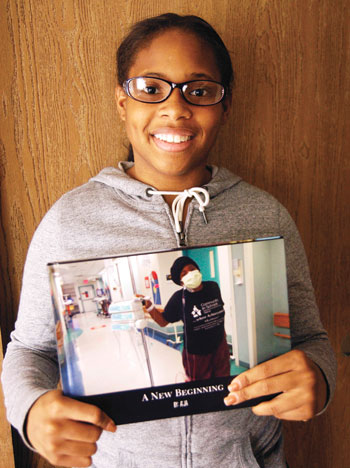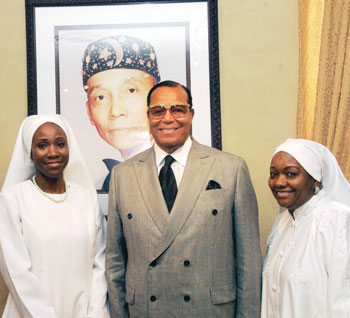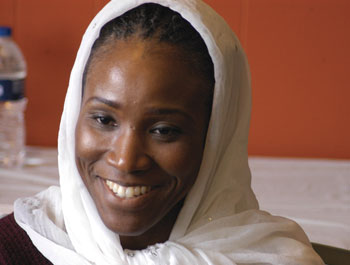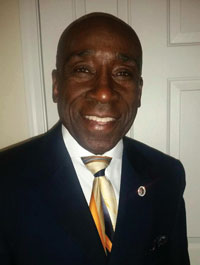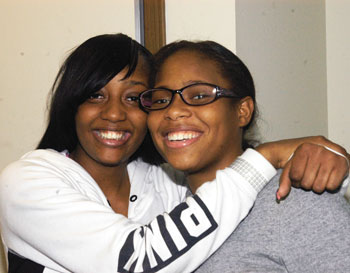Why America's Race Problem Won't Go Away
By Charlene Muhammad -National Correspondent- | Last updated: Mar 17, 2015 - 12:11:18 PMPrinter Friendly Page
In remarks commemorating the 50th anniversary of “Bloody Sunday,” the 1965 civil rights march from Selma to Montgomery, Ala., President Barack Obama declared racism and intolerance unmasked in Ferguson, Mo., no longer exists on the same wide scale and in the same way—though America’s race problem remains.
Revelations of racist chants by members of a college fraternity and police shootings of unarmed Black men clearly show hatred for Blacks remains deeply woven into the fabric of America, activists and scholars said.
Fallout continues over the University of Oklahoma chapter of Sigma Alpha Epsilon (SAE) fraternity since a video of members singing a racist song about lynching Blacks went viral.
“There will never be a n*gg*r in SAE. You can hang him from a tree, but he can never sign with me,” young White male voices rang out on a bus trip. They have since apologized.
“We can’t shake the problem of race in this country, because race is intrinsic to what America is. America will be racist for probably the rest of the time the United States is the United States,” said Dr. David Horne, professor of Critical Thinking and African History, and former chair of the Pan African Studies Department at Cal State University-Northridge.
Hatred as American as apple pie
The University of Oklahoma disbanded the fraternity, expelled two members, and the national chapter revoked its charter. Although condemnation was swift and the school and fraternity leaders said racism would not be tolerated, news surfaced that 19-year-old Charles Desdunes’s mother filed a $25 million lawsuit against the fraternity at Cornell University, after it allegedly hazed the aspiring doctor to death in 2011.
According to reports, the son of Haitian immigrants died after his hands and feet were tied with duct tape and zip ties. He was blindfolded and given so much alcohol that he died within a few hours of the hazing, according to media reports.
“Race and racism are intrinsic to America. They are as American as apple pie,” Dr. Horne told The Final Call. “Any way she’s sliced, whether it’s a theoretical look at internal colonialism or structured functionalism, doesn’t matter,” Dr. Horne said.
Racism isn’t going anywhere and part of the problem is people aren’t even progressing in understanding its consequences, what to do about it, or how to make it less onerous, Dr. Horne said.
A culture of racism
Black students charged the SAE incident reflects other racial incidents at the University of Oklahoma. They said complaints to school officials about a culture of racism on campus have gone unanswered. Dr. Horne argued actions were taken against the fraternity only because frat boys got caught, not because of benevolence toward Black students.
The racist chant video surfaced the day after national civil rights leaders, President Obama, and a diverse coalition of politicians, preachers, and activists commemorated the 50th anniversary of Bloody Sunday March 6-8.
It also came on the heels of the Justice Department’s scathing indictment of the Ferguson Police Department, which it investigated following Officer Darren Wilson’s shooting of unarmed Black teen Michael Brown, Jr.
It also followed the March 9 fatal police shooting of naked and unarmed Anthony Hill, a 27-year-old Black man in Georgia, and the fatal police shooting of 19-year-old Tony Robinson. He was killed inside his home in Madison, Wisc., March 6 after an officer forced his way inside, after hearing a disturbance, according to police.
People are growing tired, noted Dr. Horne.
Part of the whole consequence of race and racism is disrespect, he said. “When you disrespect people for a long enough period of time, they do respond. They do react. People don’t like being disrespected, and that’s what we’re seeing now,” he continued.
The March 11 shooting of two police officers during a protest at the Ferguson police station raised serious concerns.
Twenty-year-old Jeffrey Williams of St. Louis has been arrested for the shootings. He’s been charged with two counts of first-degree assault, a count of firing a weapon from a vehicle and three counts of armed criminal activity. Bullets that struck police were aimed at someone else, he said.
“People are tired of being pushed around. They’re tired of being taken for granted,” Dr. Horne said.
He recommended Ferguson residents organize themselves politically and take command of the system.
“Change only comes when people decide that they’ve had enough and they are willing to organize themselves away from what the situation has been,” Dr. Horne continued.
Readin’, writin’ and racism
In certain matters, things are getting worse, according to Professor Patrick Delices, former research fellow and assistant for Pulitzer Prize winning historian Dr. Manning Marable at Columbia University. He now works for a college in New York.
“The United States of America is what it is: a nation founded on the basis of White supremacy. It is a system that prides itself on White privilege, White superiority and Black inferiority, so it is up to us to tap into our resources to create a nation of our own,” Prof. Delices told The Final Call.
The Most Honorable Elijah Muhammad was absolutely correct in directing Blacks to pool their resources to build a nation, the professor said.
If Blacks make up about 14 percent of America’s population, yet are the majority of those incarcerated, being killed, who are homeless, who are unemployed, yet spend $1.2 trillion, Blacks must redirect spending habits to strengthen families and communities, said Prof. Delices.
The answer lies in using Black spending power to create employment and educational institutions, instead of sending Black children to be taught by people who have a history of being violent towards them, and who have no vested interests in truly educating them, Prof. Delices said.
And it’s all happening under a president who identifies himself as Black, but who doesn’t have the interests of Black folks at heart, said Prof. Delices.
“In other words you, have a Black face that promotes White supremacy. You have a Black face in a position of power that serves in the best interest of White supremacy and White America and doesn’t serve in the best of interest of Black folks,” he told The Final Call.
The worst people
In Pt. 2 of his divine Saviours’ Day 2015 message titled “The Intensifying Universal Cry for Justice,” the Honorable Minister Louis Farrakhan of the Nation of Islam reiterated the Honorable Elijah Muhammad’s warning that God will mete out justice to Whites who have terrorized Blacks in her midst.
“ ‘These people,’ he was talking about White people, ‘have been the worst people to us (the Black Nation) since they have been on the face of the earth. They were created and made for just the purpose of destroying our peace as well as our lives,’ ” Minister Farrakhan stated, reading from page 49 of the Honorable Elijah Muhammad’s groundbreaking book, “Message to the Black Man in America.”
“They have destroyed 600 million of the Black Nation since they have been on our planet. This averages 100 million every thousand years of their rule. They have affected nine-tenths of the total population of the Black Man under their rule, including the Brown, Red and Yellow races,” Minister Farrakhan continued.
The best and only true solution is Blacks having their own land, where they can build their own society, free from tension, hatred and violence endemic to living in White America, the Honorable Elijah Muhammad taught. God is making a way for Blacks to gain the knowledge of self to build a civilization of their own, but today, too many are afraid and doubtful, he said.
Color blind society?
“There’s this notion that we live in a color blind, race-neutral society when people understand that race matters, and the very young folks who are chanting these racist slurs as it pertains to African Americans, they’re the ones that are going to be the CEO’s of these major companies that are not going to hire us. They’re the ones that are going to hold that system of power over us … even though they know we’re more qualified than the White person that they hire,” Prof. Delices said.
In cases where Blacks may get the job, racism in America is so rampant, it also plays out when companies neglect to hire Blacks in senior executive or leadership or managerial positions, but at lower positions with lower salaries, Prof. Delices noted.
In addition, he argued, there’s a running theme throughout the United States of America that was revealed when during the 87th Academy Awards ceremony, Patricia Arquette, a White female actress, took to the stage and championed the ridiculous, inaccurate historical claim that White women were involved in everybody’s movement.
“Black people were involved in everybody’s movement, but not everybody’s involved in the movement for Blacks to be empowered and liberated,” Prof. Delices said.
Ms. Arquette received thunderous applause when she said women’s salaries should be equal to that of men, but when singer John Legend spoke on the problems of Black male incarceration during his acceptance speech with hip hop artist/actor Common, one could hear a pin drop, Prof. Delices pointed out.
“That speaks to the theme and the reality that we have in this country, because race matters, but Black lives don’t matter,” he said. Whites aren’t interested in empowering Blacks, but maintaining their power at any cost, which they’ve proven time and time again, with the killings of Michael Brown, Jr. in Ferguson, Eric Garner in Staten Island, N.Y., and many others, he charged.
Police killings of Black males aren’t just happening in a vacuum, Prof. Delices said. “But there is an institutional process in the United States of America to displace Black males from raising their families the way they need to be raised. And that stems from the country’s history of slavery, which disallowed Black males to be with their families to begin with,” he stated.
‘Racism without racists’
According to L.A.-based human rights Attorney Nana Gyamfi, one reason for America’s race crisis is the system’s refusal to hold people accountable. The system just refuses in cases of police brutality to pursue cops criminally and actually charge them with federal crimes, or to sue civil rights violating police departments such as Ferguson, she said.
“It’s significant, for example, that the (Justice Department) found all this racism, but then turned around and decided not to indict Wilson with any federal crime, so it’s like racism without racists,” Atty. Gyamfi said.
“There’s all these people doing stuff that’s racist, but there’s no racists. Where are the racists, because you’re not holding any individuals accountable,” she said.
Ultimately, it’s up to the community to hold police and society accountable, but people need to change their strategies, she said.
“We have to admit that our attempts to go through the government, to meet with the police as some groups have been doing regularly here in L.A., to try to figure out who are the good cops, who are the bad cops, we have to admit that those strategies have not worked. And it’s okay,” she said.
Certain tactics worked before because Blacks were united, seized power and exercised power, she argued.
“We’re not together. We’re not thinking about this as a power struggle. We’re thinking about this still in a position in which we are asking, in which we are begging, in which we are the powerless, seeking that hope from the powerful, and we have to stop that,” Atty. Gyamfi insisted.
Until and unless Blacks recognize the need to take personal responsibility for solutions, things won’t change, she said. “You just can’t sit and see that this is a terrible thing and do locker room talk about it. We know that there are people obviously that are up in arms, that are in the streets, that are doing the work to seize power but it’s not enough people, and they don’t have enough support,” she said.
Dr. Boyce Watkins, writer, organizer, and academic, told The Final Call federal action on Ferguson wasn’t the best the government could do and the Obama administration is a big part of the problem. “The Obama administration has been incredibly weak on most issues that relate to racial justice. In fact, his presidency has been a huge setback for the African American community,” Dr. Watkins stated in an e-mail interview from Botswana in Southern Africa.
“White people are angry, which puts us all in danger. The key is that we might need to get angry too,” said Dr. Watkins. He’s unsure if police ever felt that it was open season on Blacks, because many of them have been truly trained to believe Blacks are threats.
“In fact, some of them think they are doing the right thing when they kill a young Black man. What has to happen now is for Black people to make our voices heard and to realize that many of these White folks are NOT our friends. Once we realize that our sons have always been in danger, we might gain the will to fight back,” Dr. Watkins said.
